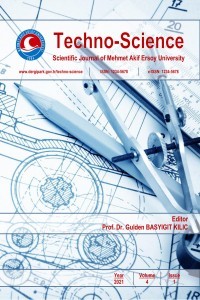Utilization of waste heat from exhaust gases of gasoline generator for water heating
Utilization of waste heat from exhaust gases of gasoline generator for water heating
This work presents the application of waste heat from exhaust gases of gasoline generator through a heat exchanger for household water heating. Two cases were experimented. First, was when water was supplied and filled the heat exchanger without discharging through the tap (retained). Second, was when water was continuously supplied to the heat exchanger and continuously discharged through the tap. In both cases, the temperatures of water and exhaust gases were measured. Measurement showed that during one hour of operation, the water temperature increased from 300C to 630C in the first case and from 280C to 490C in the second case. The average mass flow rate of water in the first case, average mass heating rate of water in the second case and average mass flow rate of exhaust gas in the first and second cases were determined to be 0.01 kg/s, 0.044 kg/s, 0.02 kg/s and 0.09 kg/s respectively. The heat gain rate of water in first and second cases were determined to be 1.28 kW and 22.58 kW respectively.
Keywords:
Waste heat, heat exchanger exhaust gas, water being discharged, Retained water,
___
- [1]. Vijay V. S., Aravinda B. K., Sachin S., Gurudatta N., Russell S.(2016). Design and fabrication of heat exchanger for waste heat recovery from exhaust gas of diesel engine. Journal of Mechanical Engineering and Automation, vol. 6, no.5A p. 131-137.
- [2]. Cirincione, N.(2011). Design, construction and commissioning of an organic rankine cycle waste heat recovery system with a tesla-hybrid turbine expander. M.Sc Thesis, Colorado State University.
- [3]. Holubčík, M., Hužvár, J., Jandačka, J.(2011). Combined production of heat and electricity with use of micro cogeneration. IN-TECH 2011 International Conference on Innovative Technologies, p.200-202.
- [4]. Wang, S.(1996). Motor Vehicle air conditioning, utilizing the exhaust gas energy to power an absorption refrigeration cycle. M.Sc Thesis. University of Cape Town.
- [5]. Guduru, K. K., Ipak, Y, K.(2016). Power generation by exhaust gases on diesel engine. International Journal of Research and Computational Technology, vol. 7, no.5 p.6-13.
- [6]. Singh, B. K., Shrivastava, N.(2014).Exhaust gas heat recovery for C.I engine-a review. International Journal of Engineering Sciences & Research Technology, vol. 3, no. 11 p.27-32.
- [7]. Capano, G.(2014). Waste heat recovery systems for fuel economy, from https://scholar.uwindsor.ca/cgi/viewcontent.cgi?article=6014&context=etd, accessed on 2018-03-23.
- [8]. Will.F.(2010). A novel exhausts heat recovery system to reduce fuel consumptionWorld Automotive Congress, p. 1-10.
- [9]. Miloš, B., Dalibor, B.(2016). The draft of the exhaust gas heat exchanger and using of waste heat from internal combustion engines. Technical Issues, vol.3, no. 2016 p. 19-28.
- [10]. Khaled, M., Ramadan , M., Chahine, K., Assi, A. (2015). Prototype implementation and experimental analysis of water heating using recovered waste heat of chimneys. Case Studies in Thermal Engineering, vol.5, no.2015 p.127-133.
- [11]. Tang, Z.B., Deng, Y .D., Su, C. Q., Shuai, W. W., Xie C. J. (2015). A research on thermoelectric generator's electrical performance under temperature mismatch conditions for automotive waste heat recovery system, Case Studies in Thermal Engineering, vol.5, no. 2015 p.143-150.
- [12]. Muhammad, S. M., Faheem, A., Maria H., Haseeb A., Osama B. M.(2017) Hybrid system for electricity generation using waste heat & wind from exhaust duct of generator. International Journal of Engineering Works, vol. 4, no. 5 p.101-107.
- [13].Talib, K., Herawan, S.G., Tahir, M. M., Pura, A., Shamsudin, S.A. (2017). Study on waste heat recovery from exchaust gas spark ignition(S.I) engine using steam turbine mechanism. MATEC Web of conferences, p.1-10.
- [14]. Tzer-Ming, J., Sheng-Chung, T., Bo-Jun, Y., Yi-Chun, L.(2016). Design, manufacture and performance test of the thermoelectric generator system for waste heat recovery of engine exhaust, Inventions vol. 2016, no. 1, 2 p. 1-16.
- [15]. Stuban, N., Torok, A.(2017). Utilization of exhaust gas thermal energy – theoretical investigation. From https://repozitorium.omikk.bme.hu/bitstream/handle/10890/3972/88202.pdf?sequence=1(accessed 2018-06-19).
- [16]. Munna, S. N., Sabi, S. S. B., Mohammed, A. E., Mohammed, R. A., Sujith, S. T.(2016). Organic rankine cycle system for waste heat recovery from twin cylinder diesel engine exhaust, International Journal of Research in Mechanical Engineering, vol.4, no. 3 p.135-141.
- [17]. Mali, T.P., Saini, M., Joshi, A. K.(2017). Waste heat recovery in domestic refrigeration system in the application of water heating, Journal for Research, vol.3, no.1 p.82-85.
- [18]. Romdhane, B S. (2009). Water-heater coupled with the refrigerator to develop the heat of the condenser. International Renewable Energy Congress, p. 12-18.
- [19]. Patil, Y.A., Dange H.M. (2013). Improving the performance of household refrigerator byrecovering heat from the condenser, International Journal of Science and Research,vol. 2, no. 6 p.303-305.
- [20]. Abu-Mulaweh, H. I. (2006). Design and performance of a thermosiphon heat recovery system, Applied Thermal Engineering, vol.26, no.2006 p.471–477.
- [21]. Jadhav. P. J., Sapkal, N. D., Kale, M. R., Bhandigare. V. V.(2014). Heat recovery from refrigerator using water heater and hot box, International Journal of Engineering Research & Technology, vol. 3, no.5 p.349-358.
- [22] . Owojaiye, A.(2017). Design and fabrication of a waste heat recovery heat exchanger. B.Eng Thesis, Mechanical Engineering Department, Federal University of Technology, Minna, Niger State, Nigeria.
- Yayın Aralığı: Yılda 2 Sayı
- Başlangıç: 2018
- Yayıncı: Burdur Mehmet Akif Ersoy Üniversitesi
Sayıdaki Diğer Makaleler
Energy potential from gasification of agricultural residues in Burdur, Turkey
Zuhal AKYÜREK, Afşin GÜNGÖR, Ali Özhan AKYÜZ
Utilization of waste heat from exhaust gases of gasoline generator for water heating
Nicholas MUSA, James OKEGBİLE, Adeola OWOJAİYE
Deep Learning in Marble Slabs Classification
